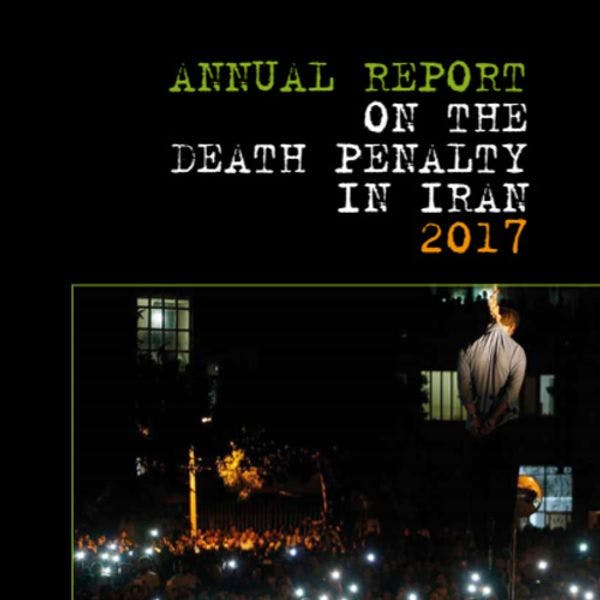Informe anual sobre la pena de muerte en Irán 2017
El 10º informe anual de Iran Human Rights (IHR) y ECPM muestra que, en 2017, al menos 517 personas fueron ejecutadas en la República Islámica de Irán. Más información, en inglés, está disponible abajo.
The 10th annual report on the death penalty in Iran by Iran Human Rights (IHR) and ECPM shows that in 2017 at least 517 people were executed in the Islamic Republic of Iran. This number is comparable with the execution figures in 2016 and confirms the relative reduction in the use of the death penalty compared to the period between 2010 and 2015. Nevertheless, with an average of more than one execution every day and more than one execution per one million inhabitants in 2017, Iran remained the country with the highest number of executions per capita.
In 2017, the process of introducing new amendments to the Anti-drug law entered a new phase. The amendments had the support of the majority of the Iranian Parliament members and were scheduled to be put to the vote during the first half of the year. However, the Iranian authorities continued carrying out death sentences for drug-related charges while the bill was being reviewed by the Judicial Commission of the Iranian Parliament and despite the fact that Iranian members of parliament had requested that the Judiciary stop drug-related executions until the fate of the new bill was clear. However, this request did not stop the Judiciary from carrying out death sentences for at least 231 prisoners, the sentences of many of whom would have been commuted according to the new law which was later passed by Parliament and approved by the Guardian Council. In the months of January and July alone, at least 120 people were executed for drug offences.
Nevertheless, drug-related executions showed a 22% reduction compared with 2016 and as of February 2018 IHR has not received any reports of drug-related executions since the new amendments on the Anti-drug law were enforced on 14 November 2017. Whether the halt in drug-related executions is permanent remains to be seen.
Commenting on the reduction in drug-related executions in 2017, Mahmood AmiryMoghaddam, IHR’s Director and spokesperson, said: “We welcome the new amendments in the Anti-Narcotics law which, if implemented properly, will commute several thousand death sentences. The Iranian authorities must make sure that the cases of all drug offenders on death row are reviewed automatically and the process must be closely monitored by the international community. Moreover, this must be the first step towards abolition of the death penalty for all drug offenses.”
While the number of drug-related executions dropped significantly, the total number of executions did not. This is largely due to the significant increase in implementation of death sentences in murder cases, so-called qisas executions. For the first time since 2009, the number of qisas executions exceeded those for drug charges with a 29% reduction in drugrelated executions and a 69% increase in qisas executions. The increase in the number of qisas executions has been evident in most prisons across the country in a way that appears to be the result of coordinated action by the authorities.
